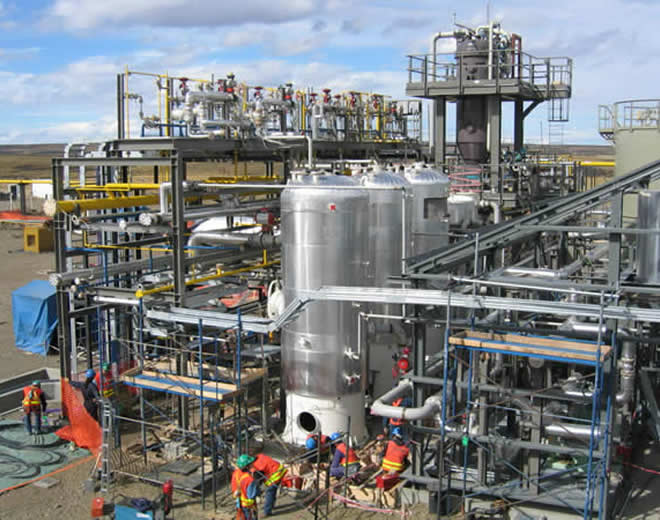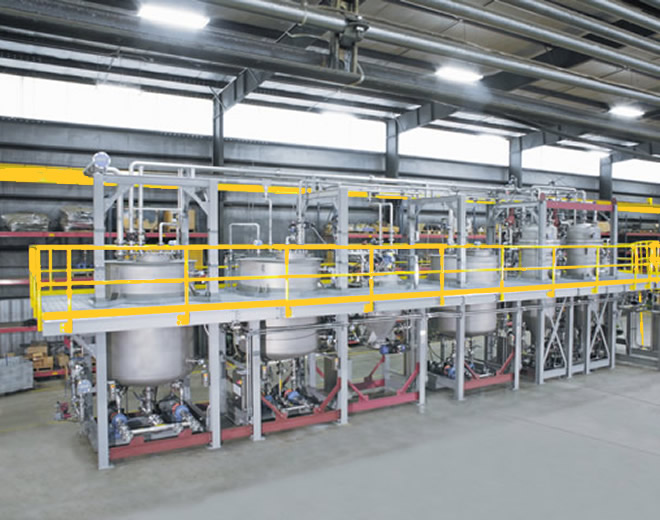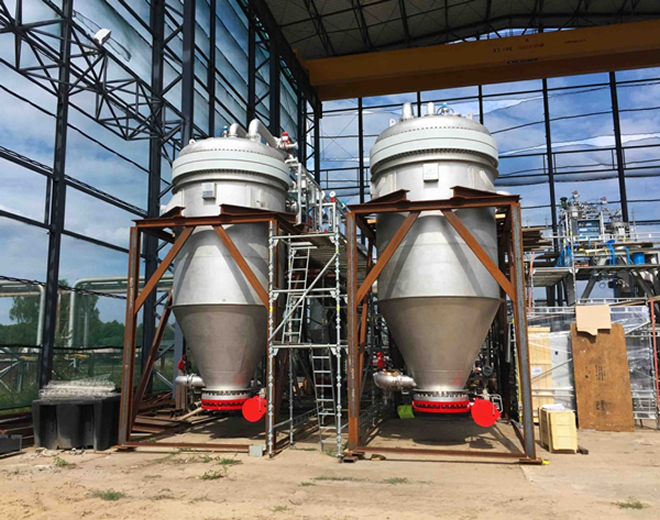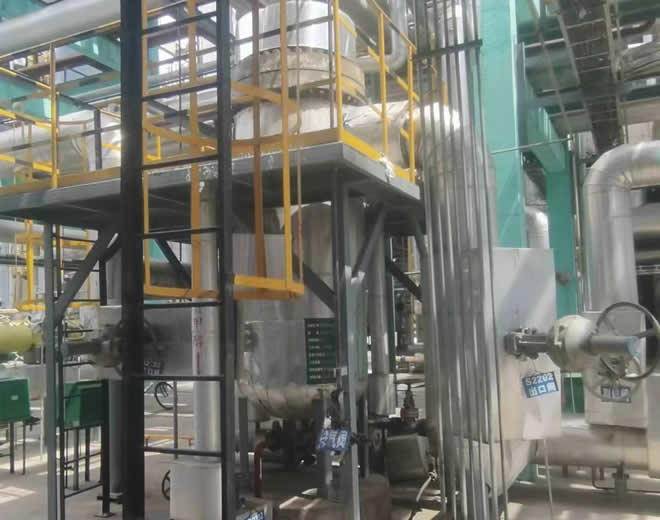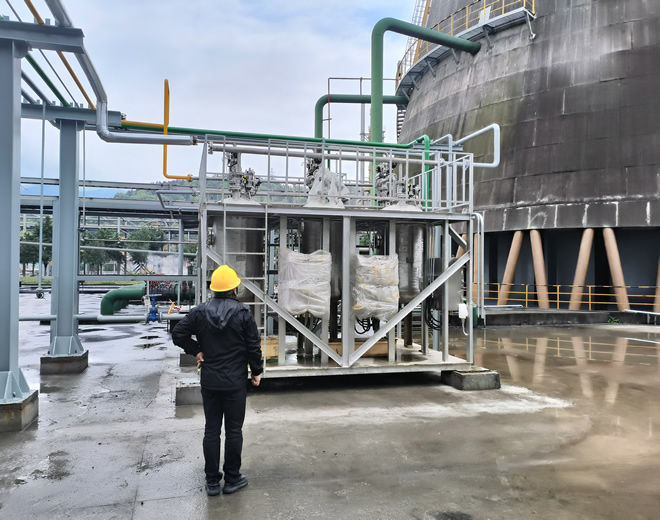Description
I.Introduction
Chemical industry filters are widely used devices in the chemical industry for separating or removing unwanted solid particles, liquids, or
gas impurities from fluids. Their main task is to capture or block impurities in fluids through a filter medium, improving product quality, ensuring
equipment safety, prolonging equipment life, and complying with regulations and environmental standards. Application areas and fields include
the pharmaceutical industry, food and beverage industry, electronics manufacturing, water treatment, environmental protection, and the
petroleum and natural gas industry.
II.Working Principle
Fluids or gas mixtures enter the filter through the inlet of the filter, passing through a filtration medium. The filter usually consists of a sieve
or porous filter material with different sizes and shapes of holes or sieve holes, chosen according to the requirement to retain solid particles or
impurities in the filter while allowing pure liquid or gas to pass through.
Once the mixture enters the filter, substances are obstructed, and large particles or impurities cannot pass through the pores or sieve
holes. Smaller liquid or gas molecules can pass through, resulting in a separation process known as screening or filtration. If the filter medium
inside the filter becomes saturated or clogged, cleaning or replacement is necessary. The cleaning process usually involves flushing the filter
medium with a reverse flow of liquid or gas to flush out accumulated impurities. When the filter can no longer function effectively, the filter
medium needs replacement.
In summary, the working principle of chemical industry filters is based on physical separation. By selecting appropriate filter media and
operating conditions, solid particles, suspended matter, or other impurities can be effectively separated from fluids, meeting the diverse needs
of the industrial and manufacturing sectors.
III.Advantages of Chemical Industry Filters
1.Solid Particle Separation: Chemical industry filters can effectively separate solid particles from liquids or gases, thereby enhancing
product quality and purity. This is crucial for various chemical processes, pharmaceuticals, and the food and beverage industries.
2.Removal of Suspended Matter: Filters can efficiently remove suspended matter from liquids, including suspended microorganisms,
precipitates, and other impurities, ensuring cleaner and more reliable end products.
3.Process Stability: By removing impurities, chemical industry filters contribute to maintaining the stability of production processes. This
helps reduce product variability, improve product consistency, and decrease the occurrence of unexpected events during production.
4.Extended Equipment Lifespan: Filters prevent impurities from entering equipment and pipelines, thereby extending the lifespan of the
equipment. This aids in reducing maintenance costs and the frequency of equipment replacements.
5.Increased Operational Efficiency: Chemical industry filters can be automated, reducing the need for manual intervention. This enhances
production efficiency, reduces labor costs, and minimizes the risk of operational errors.
6.Environmental Protection: By reducing impurity emissions into the environment, filters contribute to lowering the risk of environmental
pollution. This is crucial for compliance with regulations and achieving environmental sustainability goals.
7.Diversity: Chemical industry filters come in various types, including pressure filters, gravity filters, adsorption filters, etc., suitable for
different application needs. They can be customized based on fluid properties and filtration objectives.
8.Economic Benefits: While filters require initial investment, they can lower subsequent production costs, improve product quality, reduce
waste, and bring about long-term economic benefits.
9.Energy Efficiency: Some filter designs can reduce energy consumption by minimizing fluid resistance losses, thereby enhancing the
energy efficiency of systems.
